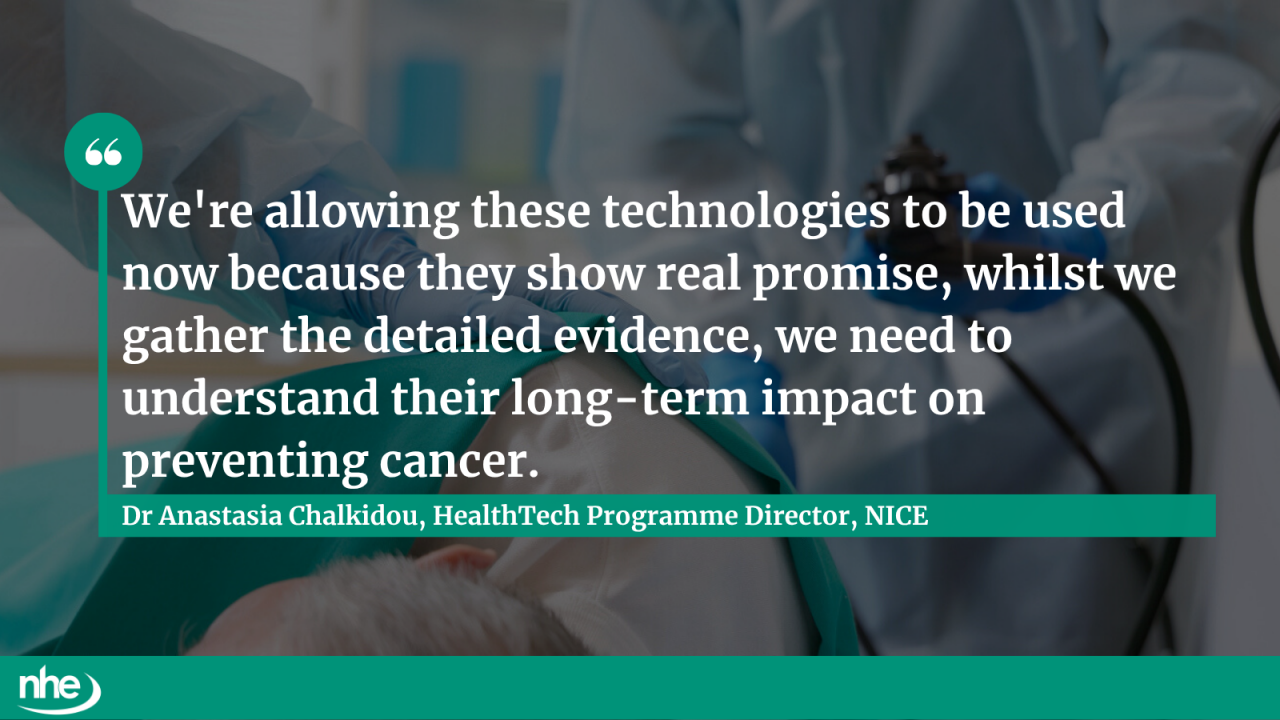Patients undergoing colonoscopy could soon benefit from cutting-edge artificial intelligence technology that helps doctors detect small growths called polyps more easily. Some polyps can develop into bowel cancer if not identified and removed early.
The National Institute for Health and Care Excellence has announced that five AI technologies can be used in the NHS while further evidence is gathered over the next four years to assess their full benefits.
These AI tools monitor the live camera feed during a colonoscopy and have learned to spot polyps by analysing thousands of images. When the software detects a potential polyp, it alerts the doctor to the area of concern – acting like an extra pair of eyes to catch anything that might otherwise be missed.
Doctors remain in full control, making all decisions about whether a growth is a polyp, whether it needs removal, and what steps to take next. The process fits seamlessly into a standard colonoscopy and typically adds only one or two minutes to the appointment.
The five approved technologies are:
- CAD EYE
- ENDO-AID
- EndoScreener
- GI Genius
- MAGENTIQ-COLO
HealthTech Programme Director at NICE, Dr Anastasia Chalkidou, said:
“These AI technologies work like a helpful assistant during bowel examinations, flagging up areas that doctors might want to take a second look at. By helping to spot more polyps, these tools could potentially save lives by catching problems before they develop into cancer.
“We're allowing these technologies to be used now because they show real promise, whilst we gather the detailed evidence, we need to understand their long-term impact on preventing cancer."

Bowel cancer is the UK’s fourth most common cancer, affecting over 42,000 people annually. Early detection is critical – 9 out of ten people survive when bowel cancer is found at its earliest stage. Identifying and removing polyps before they become cancerous is one of the most effective ways to prevent the disease.
This guidance supports the government’s mission to transform cancer care, speed up diagnoses and harness technology to improve outcomes. It aligns with the 10-Year Health Plan, which focuses on shifting care closer to home and using innovation to fight cancer.
Recent government investments include £2.4 million for an AI blood test capable of detecting cancer with over 99% accuracy, making diagnosis faster, less invasive, and more cost-effective.
Image credit: iStock



















